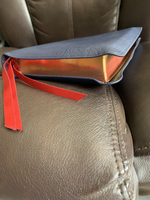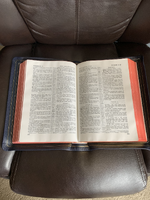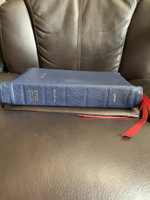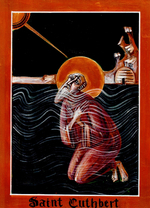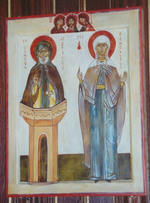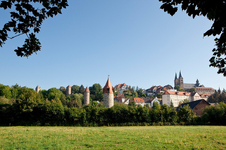- He told me to print an icon of the saint I choose as a patron saint, to frame it, and to get a little bag. After my baptism, I am to cut a bit of my hair, put it in this bag, and place the bag behind the icon inside the frame. Is this common practice? What does it mean? Any reading I can do on the matter?
Unfamiliar with this practice
- The priest recommended that I read Saint John Climacus' Ladder of Divine Ascent, but I've heard people saying that this is pretty advanced reading and kind of dangerous for catechumens or recent converts and that you can go into prelest or something. I plan on simply obeying the priest and giving it a read at some point, but I would like to ask, is there anything I should be mindful or careful of?
Main thing is don't try to match monks asceticism prematurely or measure yourself against their standard as a catechumen. Prelest and despondency are possible if you don't keep the teachings in the correct perspective. But I asked my priest as well early on about reading such material and he was nothing but encouraging.
- What criteria should I consider when picking a patron Saint? Is it inappropriate to pick one just because he has the same name your parents gave you? My understanding is that your baptismal name basically becomes your true name as it's what you will be called in heaven, and I'm conflicted about the idea of changing my name.
Not inappropriate at all, I know a lot of people who picked the saint who shared a name with their birth name.
- If I am baptized with a different name to my birth name, would I need to start introducing myself to new people I meet as "hello, I am [baptismal name]"? Would I need to explain to my parents that I have a different name now and whatnot? Or is that all totally unnecessary and I can just keep going by my birth name everywhere other than at Church?
Totally up to you, I chose a patron saint that is a different name from my birth name and I only use it within the Church.
- Please explain from the very basics, what should I expect going into an adult baptism? What should I bring and what must I learn beforehand? The priest seems to think I know more than I actually do, so he didn't explain some of this stuff in as much detail as I needed. I read Kallistos Ware's The Orthodox Church and read a big PDF document that the priest sent me which explained a lot of things, but I still feel totally lost on a lot of things that I feel are probably just the basics.
Honestly if you understand and confess the Symbol of the Faith and commit yourself to attending the services, reading Scripture, learning to pray and living a life in humility and repentance, the rest is gravy. It's great to be thirsty to learn but in terms of intellectual understanding you don't really need that much. You'll pick up the most important things through practice, what you practice you'll learn and remember. Reading anything that's Orthodox and well-vouched for will steer you aright.
I thought I sorta knew what I was going into when I first decided to stop being an online inquirer and just visit an Orthodox church and speak to the priest, but I keep constantly learning stuff I was utterly unaware of. Like, we're supposed to pray facing East kinda like Muslims? Should I use a compass to pray, then, or does it not matter that much?
It is good practice but Orthodoxy is not legalistic in such matters, I don't have a eastern wall where I can make a prayer corner at home so I don't face east. The prayer is what is important. Everything else around the prayer is only there to enhance your prayer and to bring you into a state of repentance and humility before God.
I also don't quite know yet when I'm supposed to to stand or sit or bow or make the sign of the cross during liturgy or during morning/evening prayers so I have to constantly look at the priest and the other people while trying not to distract them, I don't know how exactly you're supposed to do a prostration, so on and so forth, basic stuff like that, and I don't know where to even begin learning it.
Looking and observing is the way, you won't be bothering other people. Rule of thumb is any time the Holy Trinity is named, you cross yourself. But you can also cross yourself any time you feel inspired to do so. And you won't be judged if you fail to do so when others do. Ultimately you want to cease to be self-conscious in your worship but that comes with time. And you can bring these questions back to your priest of course too, just keep a list. My priest always shows catechumens how to prostrate and such in catechism class, it's not expected that you'll know that already.
I am thoroughly humbled, I don't know a thing. Will it all just come naturally after a couple months of just observing other people at church and consuming various Orthodox media/content and whatnot, or is there something I can read filling me in on pretty much all those types of basics?
There is too much difference parish-to-parish in a lot of these smaller nuances of worship to have an all-in-one guide. Just don't stress about it too much. No one expects you to do everything perfectly, that's not even a thing.


